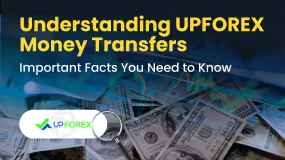Abstract:For many traders, consistent losses can feel like an inevitable part of the journey. Some blame the market, others point fingers at brokers, and many convince themselves that luck simply isn’t on their side. But the reality is that repeated trading losses are rarely down to bad luck alone. Instead, a mix of psychological, emotional, and technical factors often leads traders down the path of blown accounts and frustrating setbacks. Understanding these deeper issues is key to breaking the cycle and becoming a more resilient and strategic trader.

For many traders, consistent losses can feel like an inevitable part of the journey. Some blame the market, others point fingers at brokers, and many convince themselves that luck simply isnt on their side. But the reality is that repeated trading losses are rarely down to bad luck alone. Instead, a mix of psychological, emotional, and technical factors often leads traders down the path of blown accounts and frustrating setbacks. Understanding these deeper issues is key to breaking the cycle and becoming a more resilient and strategic trader.

One of the biggest psychological pitfalls in trading is overconfidence. After a few winning trades, many traders develop a false sense of security, believing they have mastered the market. This leads to excessive risk-taking, poor trade selection, and ultimately, heavy losses. On the flip side, fear can be just as damaging. Traders who have experienced multiple losses may become too hesitant, second-guessing every decision or exiting profitable trades too early, missing out on potential gains.
The key to overcoming these psychological barriers is discipline. Traders must acknowledge that no strategy guarantees success every time and that long-term consistency matters more than short-term wins. Developing a systematic approach—one that includes risk management, clear entry and exit rules, and emotional detachment from individual trades—can help mitigate these issues.
Emotional trading is one of the most common reasons traders repeatedly blow their accounts. Greed and revenge trading are particularly dangerous. After a profitable streak, traders may take on excessive risk in the hope of amplifying gains, leading to reckless decisions. Conversely, after a significant loss, some traders feel compelled to recover immediately, often by entering impulsive, high-risk trades—turning a bad situation into a disastrous one.
Managing emotions requires a shift in mindset. Instead of chasing losses or getting carried away with wins, successful traders treat trading as a business. This means setting daily loss limits, walking away after a streak of bad trades, and maintaining a neutral emotional state regardless of market outcomes. Journaling trades and reviewing past mistakes can also help traders identify patterns of emotional decision-making and work towards eliminating them.
Beyond psychological and emotional factors, many traders suffer from a fundamental lack of technical knowledge. Some jump into the markets without a well-defined strategy, relying on guesswork or signals from unreliable sources. Others fail to grasp essential risk management principles, such as position sizing, stop-loss placement, and risk-reward ratios.
A robust trading plan should include clear criteria for trade entry, exit, and risk parameters. Successful traders prioritise risk management, ensuring that no single trade can significantly damage their account. They also continuously refine their strategies through back testing and market analysis, adapting to changing conditions rather than sticking rigidly to outdated methods.
Consistently losing traders often focus on external factors, such as the market, the broker, or bad luck, without addressing the internal weaknesses that contribute to their failures. By tackling the psychological, emotional, and technical aspects of trading, it is possible to shift from being a struggling trader to a disciplined, strategic one.
Success in trading isn‘t about winning every trade; it’s about long-term survival and profitability. Those who learn to control their emotions, refine their strategies, and manage risk effectively will find themselves on the right side of the market more often than not.











